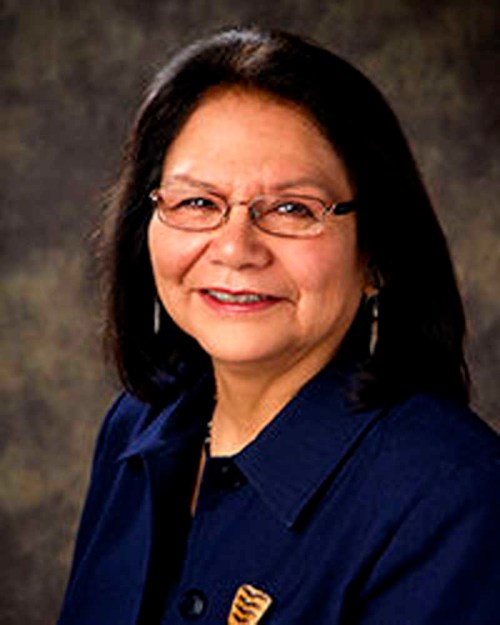Kat Brigham speaks on climate panel about bringing Indigenous voice forward
Published 12:00 pm Friday, November 5, 2021

- Brigham
PENDLETON — Kat Brigham, chair of the Confederated Tribes of the Umatilla Indian Reservation Board of Trustees, sat alongside a prestigious panel on Wednesday, Nov. 3, discussing how Indigenous knowledge can help mitigate the effects of climate change.
The presentation, held over Zoom by the Wilson Center in Washington D.C., occurred alongside the 26th United Nations Climate Change Conference of the Parties summit this week, where world leaders gathered in Glasgow, Scotland, to discuss what still needs to be done to mitigate the effects of a warming world.
“It is here,” Brigham said of climate change. “And we are seeing things we have never seen before.”
A vocal proponent and longtime advocate of environmental preservation, Brigham has fought for years to ensure the sustainability of the natural resources that are the backbone of tribal life.
Joining Brigham on the panel was Dalee Sambo Dorough, chair of the Inuit Circumpolar Council. Together, they emphasized the need to bring Indigenous voices and perspectives to the forefront of climate action.
“Action is what is needed,” Dorough said.
The two spoke about treaty rights for Indigenous people, the need to bring forward the perspectives of Indigenous women, the trauma and psychological impact environmental degradation has on their communities, and what recent action by national leaders means to them.
“It’s important that the tribes are there from the very beginning to help,” Brigham said. “We want to help … When we’re not part of the solution, we will be a part of the problem, because we will not be protecting our natural resources for our children’s children.”
Brigham spoke about how, for decades, salmon runs depleted across the region. The local tribes consider the fish are essential, so Brigham fought alongside local leaders to restore habitats and bring salmon back, building irrigation systems and hatcheries for the Umatilla and Walla Walla basin. She emphasized the efforts benefitted not only tribal members, but people living across the region.
Tribal efforts made to restore natural resources show how collaboration can lead to meaningful change, Brigham said. Such efforts also will prove especially important to addressing how climate change impacts communities who are most vulnerable to its effects, Brigham and Dorough said.
Recent actions by the Biden Administration, including the appointment of Deb Haaland to lead the Interior Department as the nation’s first Native American to lead a cabinet-level agency, show how the federal government is making efforts to bring Indigenous leaders forward, Brigham and Dorough said.
Brigham called recent actions by the Biden administration to amplify Indigenous voices in combatting climate change a “turning point.” The next move, she said, will be to educate and empower youth to protect the land.
“When we have no clean air, and we have no clean water, where are we going?” Brigham said. “We have no place to go. We have to protect our natural resources for today, tomorrow, and all our future generations. I want to be able to say, when our grandchildren ask, ‘What did you do?’ I want to be able to say we spoke up. We fought for your rights and your children’s rights.





